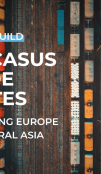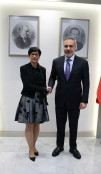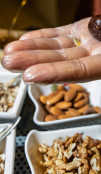Women together feel stronger

Nine Syrian and six Turkish women joined forces to stamp the Beri brand.
Reborn is how the enterprising women working for the EU supported Beri co-operative in Ankara, see themselves. Beri means “rebirth”.
The project’s success is highlighted by bringing together Turkish and Syrian women. It has helped them step away from being home-bound “housewives” to empowering them in the world of business
Nine Syrian and six Turkish women joined forces to stamp the Beri brand on children’s clothes and other garments they create.
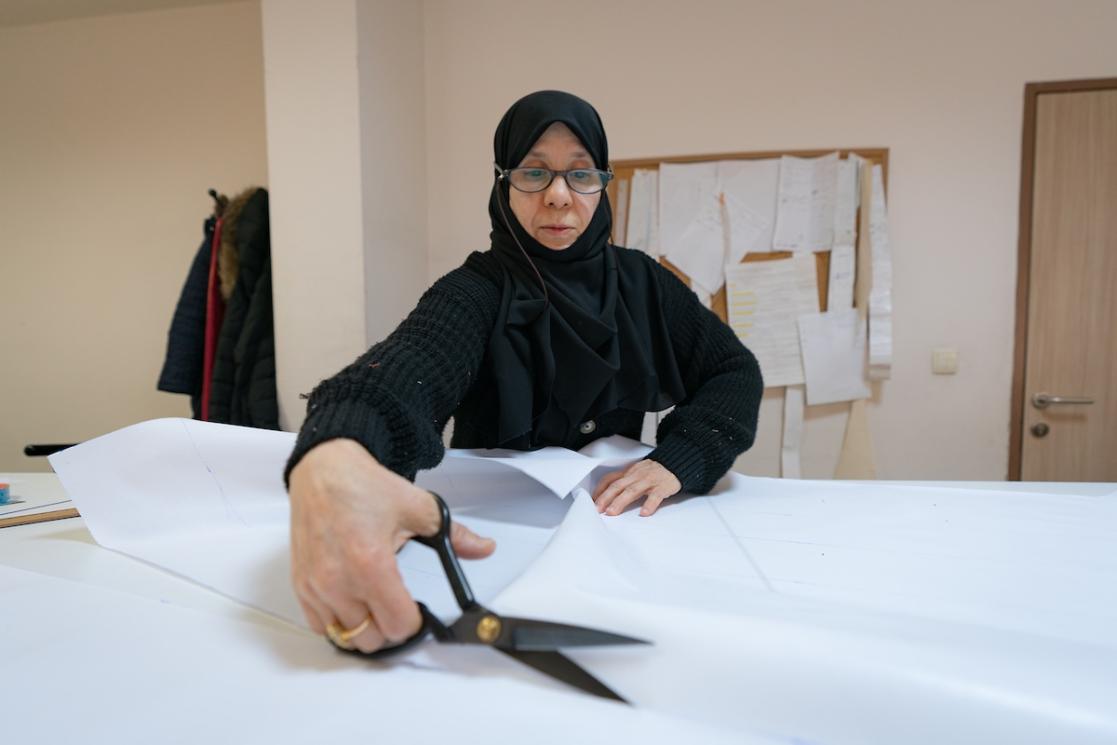
EUROPEAN UNION, 2025
At the Beri Co-operative, women design and create children's clothing.
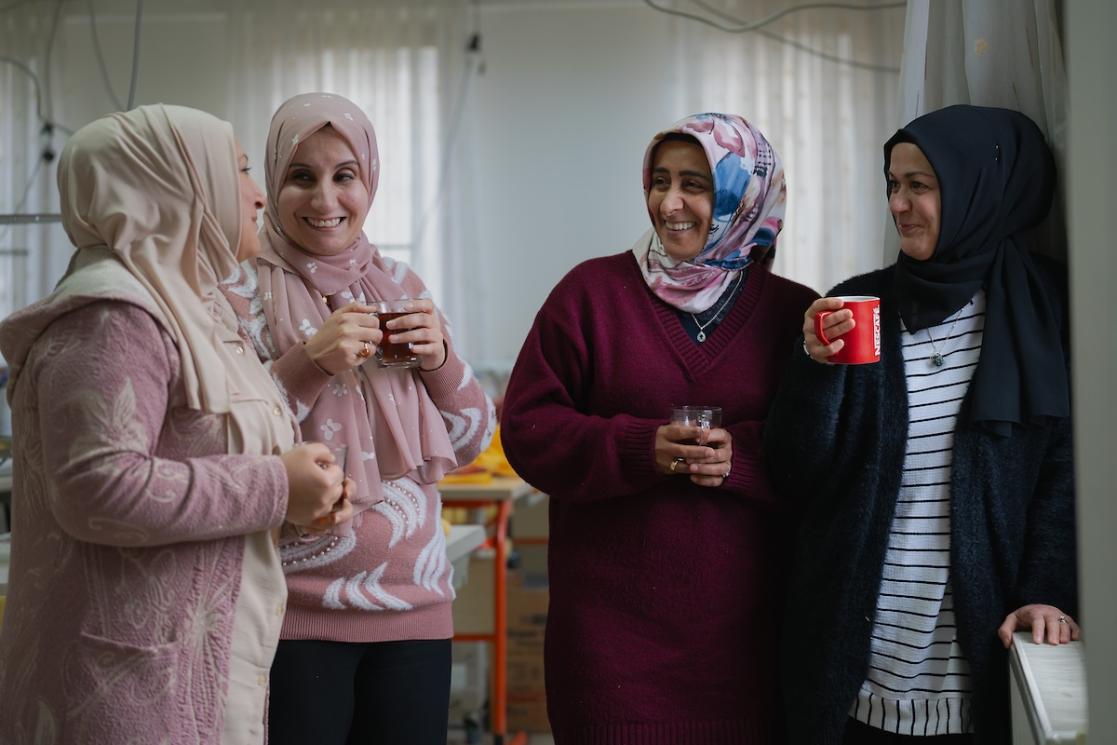
EUROPEAN UNION, 2025
The project’s success is highlighted by bringing together Turkish and Syrian women.
As co-op partners, they say that transitioning from a domestic lifestyle to earning an income has boosted their self-confidence, thanks to training and business success developed under the project.
Despite coming from different cultural backgrounds, the group has come together, they say, by recognising common challenges as women.
Beri is a social co-operative producing garments. It is part of the “Strengthening Economic Opportunities for Syrians Under Temporary Protection” (SuTP) scheme. In selected locations it links Syrian and Turkish citizens.
The women were all trained in business practices and now run the Beri co-operative as a team. It has helped them to become money earners who can contribute more to their family budgets.
The European Union and the World Bank are strong supporters of the Government of Türkiye in creating employment opportunities, improving living conditions and mitigating negative effects on refugees and Turkish citizens.
This partnership/ collaboration' led to the development of the SECoP (Social Entrepreneurship Community of Practice) in 2019, which supported the Beri brand.
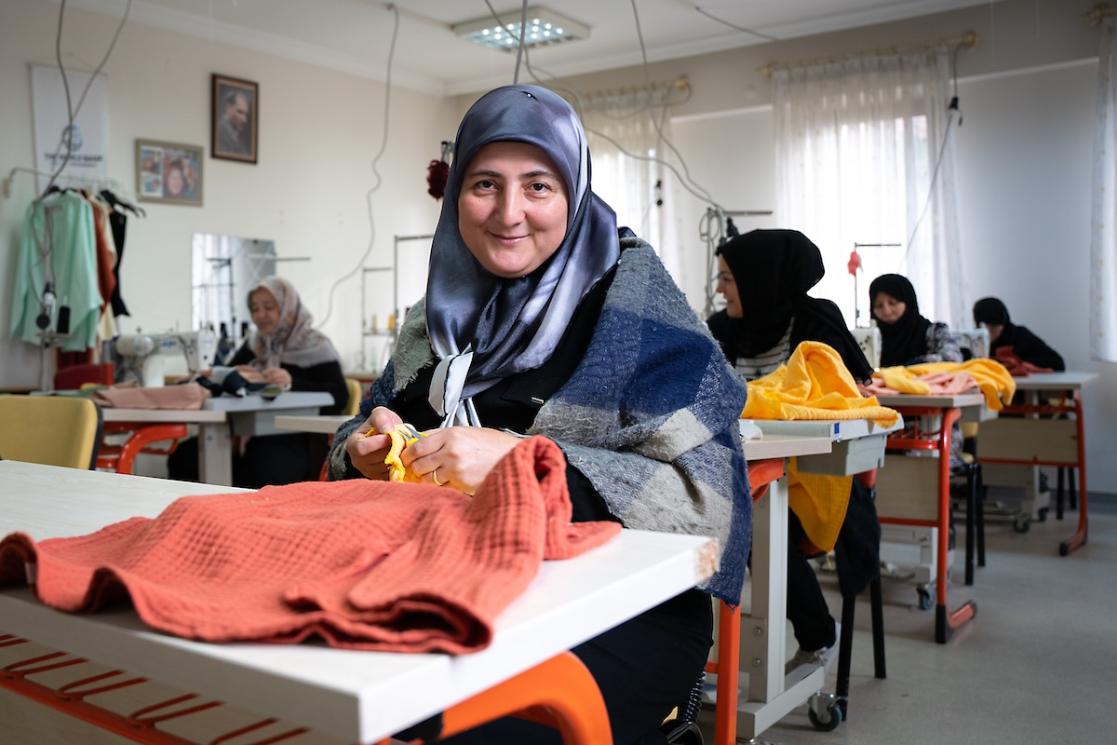
EUROPEAN UNION, 2025
Chair of the Board Selda Bilgin says that Beri is not just a workplace, it helped the women develop the co-operative and grow their self-esteem along the way.
“Beri is not just a workplace,” says Selda Bilgin who chairs the co-operative’s Board of Directors. She praises the unity the project has created as it helped the women develop the co-operative and grow their self-esteem along the way.
“Beri is a symbol of our re-birth. Women like me, who had never worked before, who had only ever been housewives with domestic skills, are finding empowerment here and learning to stand on our own two feet.”
Selda says that women employed on the project earn their own money, become more independently minded and are able to contribute more to the family income, adding: “This strengthens us not just financially but emotionally as well.
“This co-operative represents the power of coming together and achieving together. The fact that it is run entirely by women amplifies our strength.”
Now in her forties, Fatma Ericek says she has found a new direction in life. “For the first time,” she says, “I earn my own money. I used to think of myself as a machine, just sitting at home, doing housework, cooking meals. But here I no longer feel like a machine.”
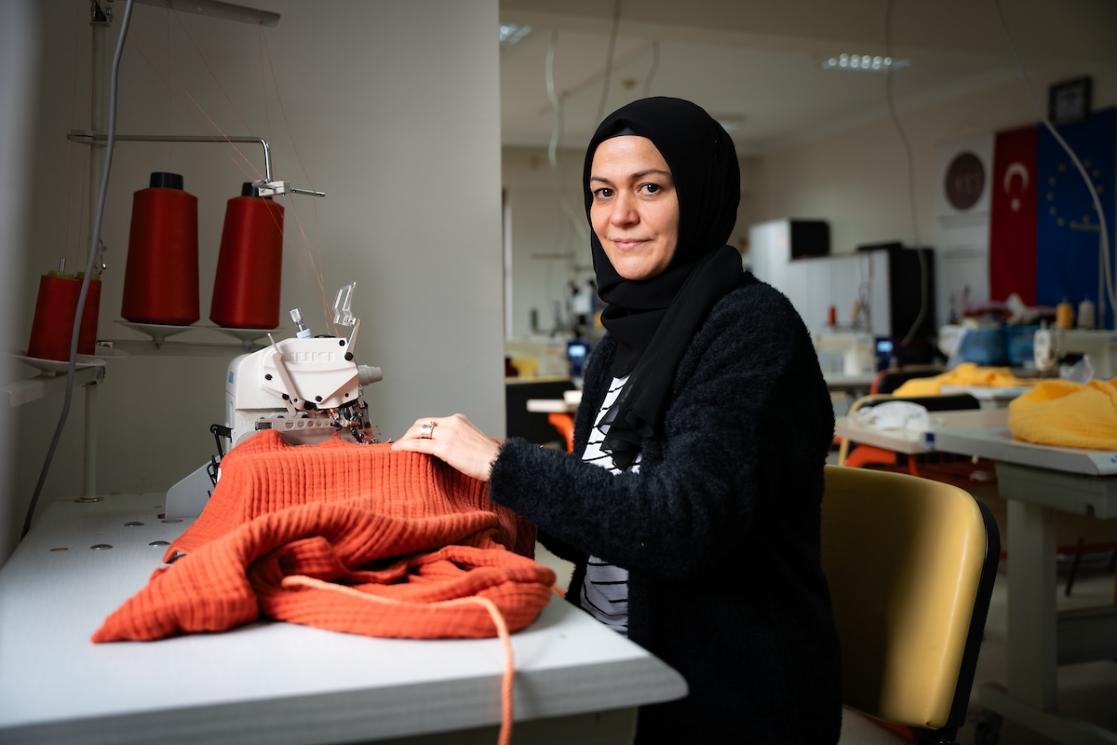
EUROPEAN UNION, 2025
Raziye Oğuz says she bought clothes for her children with the first money she earned.
Raziye Oğuz’s eyes lit up as she remembered her first salary and using the money to buy clothes for her children. She says it gave her strength, adding: “It may not have been much, but buying with my own money felt entirely different.”

EUROPEAN UNION, 2025
Syrians Fayize al-Hayci and Nadir Kamber work with Turkish women who, like them, have benefited from the training at Beri.
As an employee of the co-operative and as an entrepreneur, Syrian Fayize el-Hayci works alongside Turkish women who, like her, benefitted from the training at Beri. She says it stimulated vocational skills and personal development.
“I used to work in Syria,” she says, “And now I am earning my own money here too. It makes me feel incredibly strong.” She added: “Beri transformed me into the free woman I was back in Syria.”
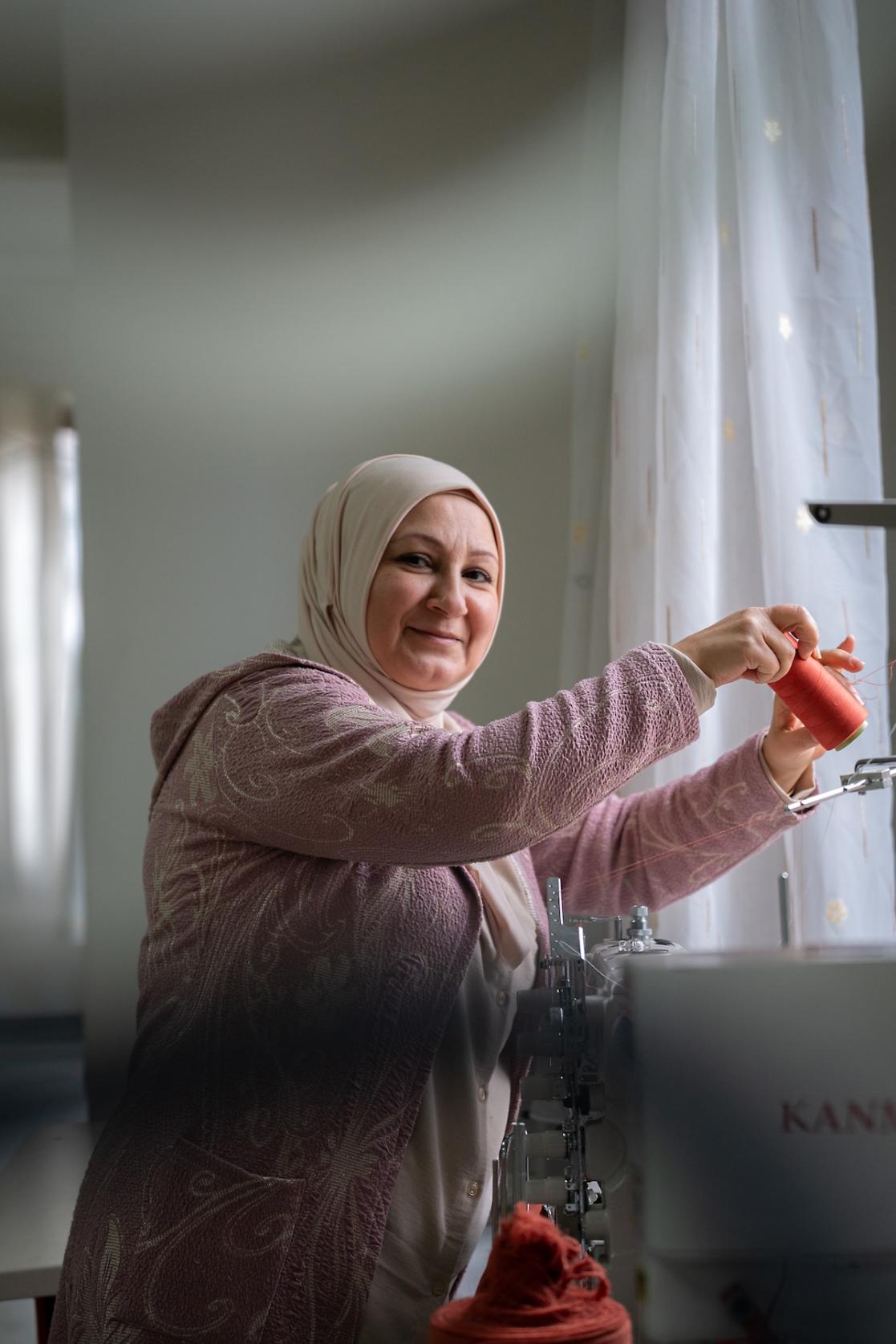
EUROPEAN UNION, 2025
Beri helped Syrian Nadir Kamber regain her confidence.
Beri helped Nadir Kamber regain her confidence. Having learned Turkish, she says: “Working with Turkish women and learning from them has been invaluable. They’ve also learned from our experiences. Together we’ve complemented each other’s strengths and created something beautiful.”
Fatma says: “I’ve built a new life here. I first learned to trust myself and realised that women can achieve things too. While striving to be a better mother for my children, I learned that I could also do something for myself.”
Chair of the Board, Selda, added: “We did not have much interaction with Syrian women before. We lived in the same neighbourhood, even in the same apartment buildings, but there was no dialogue, mainly because of the language barrier.”
“Once we started spending time together here, as the years passed, even though our languages didn’t align, our hearts became one.”
“Now we understand each other because we are all women. We’ve come to realise that being a woman has no religion, language, or race. We all share the same problems, the same struggles, and the same desires.”
Key Facts About SECoP – the Social Entrepreneurship Community of Practice
- Established in 2019, it shares the operational knowledge of four social co-operatives: Beri, Halka, Ahenk and Ekip
- It aims to maximise the potential of social entrepreneurship and supports employment growth
- SECoP members organise thematic meetings, facilitating knowledge sharing and creating partnerships.
- Public institutions, have played an active role, gathering input from social enterprises in order to shape social entrepreneurship policies and address the challenges they face.
- SECoP Türkiye has around 900 members across 300 organisations, playing a pivotal role in bonding social entrepreneurs together.
- The project has created 500 jobs and employment opportunities for women, by providing support based on identified needs, including skills training, childcare, transportation and internet access.
- Co-operatives have been supported in areas such as space allocation, training, social integration, and market access by numerous organisations.
- These include development actors, municipalities, local NGOs, private sector, academia, and public institutions.
- Multi stake holders have helped the co-operatives to grow and become more sustainable.

